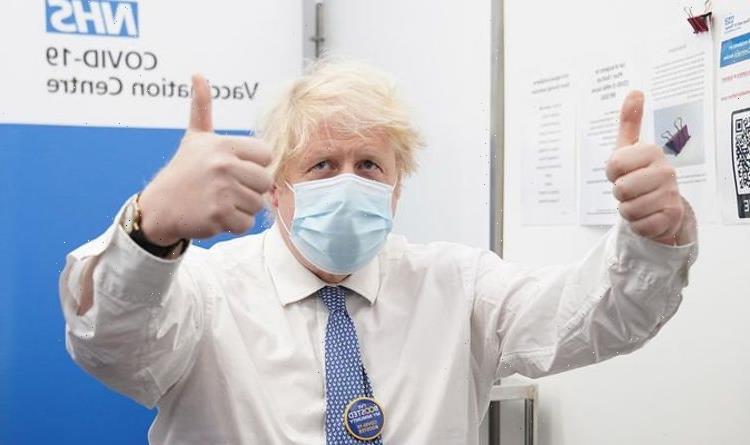Galileo: David Morris outlines UK’s role in project
We use your sign-up to provide content in ways you’ve consented to and to improve our understanding of you. This may include adverts from us and 3rd parties based on our understanding. You can unsubscribe at any time. More info
OneWeb, the Government-backed satellite company, has announced a joint development agreement (JDA) with Kymeta, the US communications company. They will develop an innovative flat-panel electronically steered user terminal together. It will support land fixed applications and lead the way to various mobility applications like land mobile, maritime, and other mobility needs of the future.
Neville Meijers, Chief Strategy and Marketing Officer, Kymeta, said: “This JDA formalised our collaborative efforts and commitment to bring to market an innovative electronically-steered antenna that is turnkey and compatible with OneWeb’s rapidly expanding LEO network.
“We look forward to this joint endeavour for the benefit of our mutual customers.”
It comes after Kymeta and OneWeb performed a series of LEO satellite acquisition, tracking and measurement tests in Toulouse, France.
It is understood that the technology will help provide precise navigation which could be used by the military, as well as other applications.


OneWeb Chief of Delivery and Operations Michele Franci added: “Kymeta’s pioneering u8 does not require mechanical components to steer toward a satellite and when paired with our LEO network will provide governments, businesses, and communities with high-throughput and low-latency communication services at competitive prices.
“This partnership is a welcome addition to our overall product strategy, offering another great choice for OneWeb’s customers and contributes to strengthening our vision to provide seamless, resilient mobile connectivity where and when it’s needed most.”
The UK was kicked out of the EU’s Global Navigation Satellite System (GNSS) when it left the bloc.
The system, which goes live in 2026, features a Public Regulated Service (PRS) that can be used by government agencies, armed forces and emergency services.
The bloc decided this “crucial feature” would only be accessible for EU members, despite the UK developing its “brains and heart”.

The Government appeared to give up on the dream of building a UK alternative when it invested an £364million ($500million) to acquire the satellite company OneWeb from bankruptcy, in conjunction with the Indian company Bharti Global.
OneWeb was designed as a broadband constellation first and foremost – it will provide rural 4G, and one day 5G, Internet signals across the nation.
It will operate in LEO, as opposed to the medium Earth orbits used by Galileo and GPS.
But Kymeta’s system is designed to work with OneWeb’s LEO network as well as other satellite networks that make use of constellations in geosynchronous orbits.
OneWeb is working with a portfolio of companies, including Hanwha, which recently invested £200 million in the operator.
DON’T MISS
EU cracks show as Germany ‘makes mockery’ of bloc’s rules [REPORT]
AstraZeneca breakthrough as ‘no evidence’ Omicron can escape vaccine [INSIGHT]
China war fears erupt as submarine snapped in Taiwan strait [REVEAL]


Hanwha made the investment via Hanwha Systems, the defence systems division that last year acquired Phasor Solutions, a British satellite antenna start-up.
The group will have a seat on OneWeb’s board.
OneWeb said the addition of one of South Korea’s leading defence groups as a shareholder would bring relationships with new Government customers and an expanded geographical reach.
Neil Masterson, OneWeb chief executive, said Hanwha would also bring “advanced defence and antenna technology” to the table.
Hanwha’s investment is due to be completed in the first half of 2022, subject to regulatory approvals.
Source: Read Full Article


